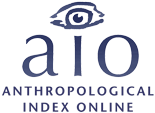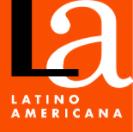On crabs, mice and beees: ability and engagement in the sciences
Keywords:
laboratory animals, emotions, skills, engagementAbstract
During my anthropological research in a neuroscience lab in Buenos Aires, I have participated in classes where experiments with animals were carried out. After rejecting several times the manipulation of crabs and mice because I was disgusted and afraid, I have accepted handling bees. The analysis of emotions as a heuristic tool enabled me to explore the processes by which a scientific skill is developed, and go into detail on the ways in which biologists in experimental work and social anthropologists in fieldwork produce knowledge. In this work, I show that natural science, whose methodological rules indicate a detached relationship with the object of study, as well as social anthropology that claims for itself, instead, the engagement with the social patterns that it studies, define their relationship with the objects of study in the concrete research experiences. In the contact and daily treatment with the objects of study, emotions and bodies brought to light tensions between the distance and proximity between researchers and the subjects of study.References
Bolton, Maggie & Degnen, Cathrine (2010). Animals and Science: From Colonial Encounters to the Biotech Industry, Cambridge Scholars Publishing, pp. 1-29
Briggs, Jean (2000). “Emotions have many faces: Inuit lessons”. En Anthropologica, vol.42, n.2, 2000. Traducción de Mariana Sirimarco.
Clifford, James (1998). Dilemas de la cultura: Antropología, literatura y arte en la perspectiva podmoderna, Buenos Aires, Gedisa.
Colabella, Laura (2014). “Te vamos a ir a buscar… Piqueteros(as) y antropólogos(as) en interacción etnográfica”. En Prácticas etnográficas. Rosana Guber (comp.) Buenos Aires, Editorial Miño y Dávila.
Csordas, Thomas (1990). “Embodiment as a Paradigm for Anthropology”, Ethos. Volume 18, N° 1, pp. 5-45.
Csordas, Thomas (1993). “Somatic Modes of Attention”, Cultural Anthropology, Vol. 8, N° 2. pp. 135-156.
Da Matta, Roberto (2007). “El oficio del etnólogo o cómo tener “Anthropological Blues””. En: Mauricio Boivin, Ana Rosato y Victoria Arribas (eds.), Constructores de otredad: una introducción a la antropología social y cultural. Buenos Aires: Antropofagia.
Davies, James (2010). “Introduction: emotions in the field”. En Davies, James y Dimitrina Spencer (eds.) 2010. Emotions in the field. The psychology and anthropology of fieldwork experience, Stanford University Press, Stanford.
Douglas, Mary (2007). Pureza y peligro: un análisis de los conceptos de contaminación y tabú. Buenos Aires, Nueva Visión.
Durham, Deborah (2011). “Disgust and the anthropological imagination”. Ethnos, Vol. 76, N°2. pp. 131–156.
Ferroni, Luana (2017). Memorias de cangrejos. Etnografía de un laboratorio de neurobiólogos argentinos. Tesis de Maestría, Mimeo. Buenos Aires, Maestría de Antropología Social IDES-IDAES-UNSAM.
Franklin, Sara (1995). “Science as culture, cultures of science”. En Annual review of anthropology. Vol 24, pp- 163-184.
Guber, Rosana (2001). La etnografía: método, campo y reflexividad. Bogotá, Norma.
Guber, Rosana (2013). La articulación etnográfica. Descubrimiento y trabajo de campo en la investigación de Esther Hermitte. Buenos Aires, Biblos.
Guber, Rosana (2014). Prácticas etnográficas. (comp.) Buenos Aires, Editorial Miño y Dávila.
Haraway, Donna (2008). When species meet, Minneapolis: University of Minnesota Press. Posthumanities Series, Volume 3.
Ingold, Tim (2003 [1994]). Companion encyclopedia of Anthropology. Humanity, culture and social life. London, Routledge.
Ingold, Tim (2011). Being Alive: Essays on Movement, Knowledge and Description. London and New York: Routledge.
Ingold, Tim (2012). Ambientes para la vida. Conversaciones sobre humanidad, conocimiento y antropología. Montevideo: Ediciones Trilce.
Ingold, Tim (2013). Anthropology beyond humanity. Edward Westermarck Memorial Lecture, May 2013.
Knorr Cetina, Karen (2005 [1981]). La fabricación del conocimiento. Un ensayo sobre el carácter constructivista y contextual de la ciencia. Bernal, Editorial de la Universidad Nacional de Quilmes.
Kolnai, Aurel (2013). Asco, soberbia, odio. Fenomenología de los sentimientos hostiles. Madrid, Ediciones Encuentro.
Latour, Bruno 1992 [1987]. Ciencia en Acción. Barcelona, Editorial Labor, S.A.
Latour, Bruno (2001 [1999]). La esperanza de Pandora. Ensayos sobre la realidad de los estudios de la ciencia.Barcelona, Gedisa.
Leavitt, John (1996). “Significado y sentimiento en la Antropología de las emociones”. En American Ethnologist, vol.23, n.3, 1996. Traducción de Deborah Daich.
Lutz, Catherine y White, Geoffrey (1986). “The anthropology of emotions”. En: Annual Review of Anthropology, vol.15. Traducción de Carlos Argañaraz.
Lynch, Michael E. (1988). “Sacrifice and the transformation of the animal body into a scientific object: Laboratory culture and ritual practice in the Neurosciences”. Sage, London, Newbury Park, Beverly Hills and New Delhi, Vol. 18, 256-89.
Olivera La Rosa, Antonio y Roselló Mir, Jaume (2013). Psicothema 2013, Vol. 25, No. 2, 222-226.
Rockwell, Elsie (2009). La Experiencia etnográfica. Paidós, Buenos Aires.
Sirimarco, Mariana (2011). “El antropólogo en el campo (policial). La propia emocionalidad como insumo de conocimiento”. Ponencia presentada en: Décimo Congreso Internacional de la Societé Internationale d´Ethnologie et de Folklore (SIEF). Facultad de Ciencias Sociales y Humanas, Universidade Nova, Lisboa. 18 al 21 de abril de 2011.
Hernández Sampieri, Roberto; Fernández-Collado, Carlos; y Bautista Lucio, Pilar (2006) Metodología de la investigación. Mc Graw Hill. México.
Shapin, Steven y Schaffer, Simon (2005). El Leviathan y la bomba de vacío. Hobbes, Boyle y la vida experimental. Bernal, Universidad Nacional de Quilmes
Snow, Charles Percy (1988 [1959]). Las dos culturas. Buenos Aires, Ediciones Nueva Visión.
Spivak L’Hoste, Ana (2010). El Balseiro: memoria y emotividad en una institución científica argentina. La Plata, Ediciones Al margen.
Stagnaro, Adriana (2015). Ciencia a pulmón: etnografías de laboratorios argentinos de biotecnología. Buenos Aires, Ediciones Ciccus.
Zapata, Laura y Genovesi, Mariela (2013). “Jeanne Favret- Saada: 'ser afectado' como medio de conocimiento en el trabajo de campo antropológico”, Avá, N° 23.
























